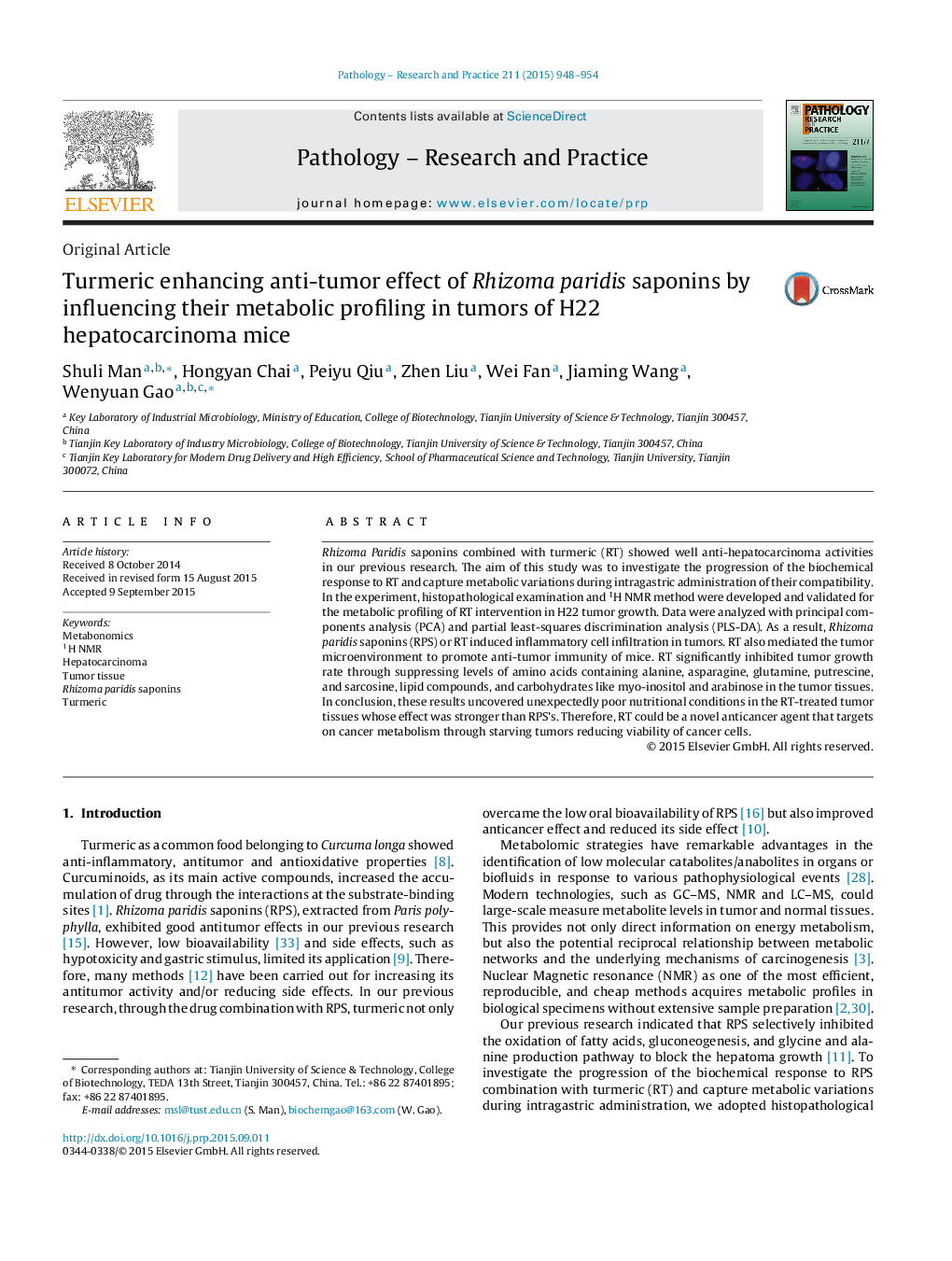| Article ID | Journal | Published Year | Pages | File Type |
|---|---|---|---|---|
| 2155224 | Pathology - Research and Practice | 2015 | 7 Pages |
Rhizoma Paridis saponins combined with turmeric (RT) showed well anti-hepatocarcinoma activities in our previous research. The aim of this study was to investigate the progression of the biochemical response to RT and capture metabolic variations during intragastric administration of their compatibility. In the experiment, histopathological examination and 1H NMR method were developed and validated for the metabolic profiling of RT intervention in H22 tumor growth. Data were analyzed with principal components analysis (PCA) and partial least-squares discrimination analysis (PLS-DA). As a result, Rhizoma paridis saponins (RPS) or RT induced inflammatory cell infiltration in tumors. RT also mediated the tumor microenvironment to promote anti-tumor immunity of mice. RT significantly inhibited tumor growth rate through suppressing levels of amino acids containing alanine, asparagine, glutamine, putrescine, and sarcosine, lipid compounds, and carbohydrates like myo-inositol and arabinose in the tumor tissues. In conclusion, these results uncovered unexpectedly poor nutritional conditions in the RT-treated tumor tissues whose effect was stronger than RPS's. Therefore, RT could be a novel anticancer agent that targets on cancer metabolism through starving tumors reducing viability of cancer cells.
